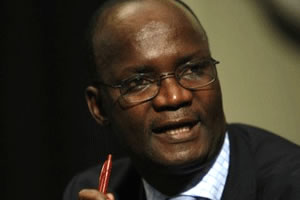Copac in gay storm

“That is how other countries end up having gay rights in their constitutions, it won’t be clearly stated for instance the South African constitution provides for non-discrimination and that is used by the gays.
“This provision in our draft I think is actually intended to cover up for homosexuality and the moment it’s in the constitution then it will be used by the gays.”
Another lawyer, Mr Terence Hussein of Hussein and Ranchhod, said if the clause was to be included in the Constitution, it will be up to the courts to interpret it.
He said the clause could be used by gays to push their agenda.
“The clause itself is vague, it will need to be clarified by the courts because someone can argue that they were born with a particular sexual orientation and demand that they not be discriminated against,” Mr Hussein said.
COPAC
Political analyst and Tsholotsho North legislator Professor Jonathan Moyo said the clause on “circumstances of birth” has been introduced to replace the one on “natural differences” that was shot down after it emerged that the intention was meant to provide for gay rights.
“It is scandalously revealing that the latest Copac draft constitution released last week has resorted to trickery and deceit in a desperate but ill-fated attempt to retain and entrench homosexuality by mischievously hiding it under the cover of a new seemingly innocuous and yet loaded phrase of ‘circumstances of birth’ which has replaced the roundly rejected phrase of ‘natural difference’ which was controversially included in the February Copac draft.
“What is very offensive about this is that the people of Zimbabwe specifically and vociferously rejected the constitutional protection of homosexuality during the Copac outreach programme.
“When clause 4.7 (3) in chapter 4 of the latest Copac draft is taken alone and when it is particularly read with clause 4.38 (1) (c) in the same chapter, there’s absolutely no doubt that the evil intention is to make homosexuality a constitutionally protected right in the latest Copac draft constitution under the sinister guise of international law. The fact that Chapter 2 of the Copac draft under clause 2.24 seeks to use the constitution to automatically domesticate international instruments makes this bad situation worse and betrays a determined assault on Zimbabwe’s sovereignty,” Prof Moyo said.
He said there was an outcry from Zimbabweans when the first draft was published with provisions for the protection of homosexuality under the cover of ‘natural differences’.
“The fact that homosexuality has come back in a foolishly hidden way in the latest draft demonstrates beyond any doubt that the Copac co-chairs, who have taken ownership of the draft in the name of a negotiated consensus, are contemptuous of the people’s views and proves that the MDC-T, which has been very vocal in support of the latest draft, is fully behind the latest sinister trick to entrench homosexuality in the Copac draft constitution against the very clear views of the people of Zimbabwe who have spoken in their great numbers against homosexuality.”
However, former Attorney General Mr Andrew Chigovera, differed saying the clause could not be used for homosexuality.
“If provisions are written in such a way that is susceptible to many interpretations, then we may have problems but as far as I understand this clause, it is not about homosexuality but the manner in which one is born.
“We may have a situation where one is born by an insane person and those are the circumstances of birth that are being talked about.
“We already have a provision for marriage being between people of opposite sex so it is not possible for someone to claim that homosexuality is provided for. The only thing gays can do is to argue that the provision on marriage is discriminatory in the sense that it talks of people being of opposite (sex),” Mr Chigovera said.
When South Africans wrote their constitution in the early 90s, the people through their representatives never consented to the inclusion of gay rights in their constitution. In fact their Marriage Act of 1961 enacted by the apartheid regime did not recognise same sex marriages. The shock only came in 2002 when one Marie Fourie and Cecelia Bonthuys, a lesbian couple, applied to the Pretoria High Court seeking an order to compel the Department of Home Affairs to recognise their marriage.
The application was turned down and the lesbian couple appealed to the Constitutional Court which ruled that refusing to recognise same sex marriages was unconstitutional and therefore legalised gay marriages. The judgment went further to order Parliament to come up with a new law legalising homosexuality.
The applicants (the lesbian couple) simply argued that section 9.3 of the South African Constitution directed that “the state may not unfairly discriminate directly or indirectly against anyone on one or more grounds, including race, gender, sex, pregnancy, marital status, ethnic or social origin, colour, sexual orientation, etc.”
It is the phrase “sexual orientation” that the lesbians used to argue their case, and provide for the recognition of homosexuality in South Africa.
The Copac draft also has sections dealing with the domestication of international law that analysts contend can be used to find loopholes to attack findamental programmes like the land reform and indigenisation and economic empowerment.









Comments